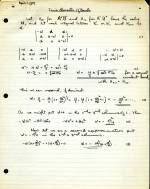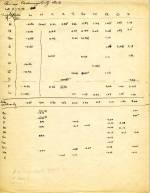|
Pauling's electronegativity scale was a number of steps removed from any rigorous
grounding in quantum mechanics, was therefore one of his least theoretically well-founded
ideas — and became one of his most influential. It was easily grasped by chemists,
who appreciated its practical value in addressing real-world problems. By comparing
the electronegativity of two elements from his tables, researchers could for the first
time roughly predict the properties of a bond formed between them without having to
know the first thing about the wave equation. The scale quickly earned wide adoption.
Pauling's mixing and matching of empirical observations with ideas from quantum physics
was imaginative and dangerous. At each step he added a few more assumptions and moved
a little further away from a hard grounding in accepted theory. Years later this would
trip him up when critics would question the justification for his schemes, but for
now it appeared that everything he did worked, and worked brilliantly.
|
|
Click images to enlarge

"Ionic Character of Bonds." April 11, 1937.

Notes and Calculations re: Electronegativity and the Electronegativity Scale. 1930s.
"Pauling's paper on bond energy and electronegativity proved to be highly influential.
The qualitative concept of electronegativity as the ability of an atom in a molecule
to attract electrons to itself was an old one. Early in the twentieth century, it
was associated in a crude way with the metallic or non-metallic character of an element,
or with its place in the activity series of the metals. The importance of Pauling's
paper derives from the fact that he was the first person to put this property on a
numerical basis."
|

